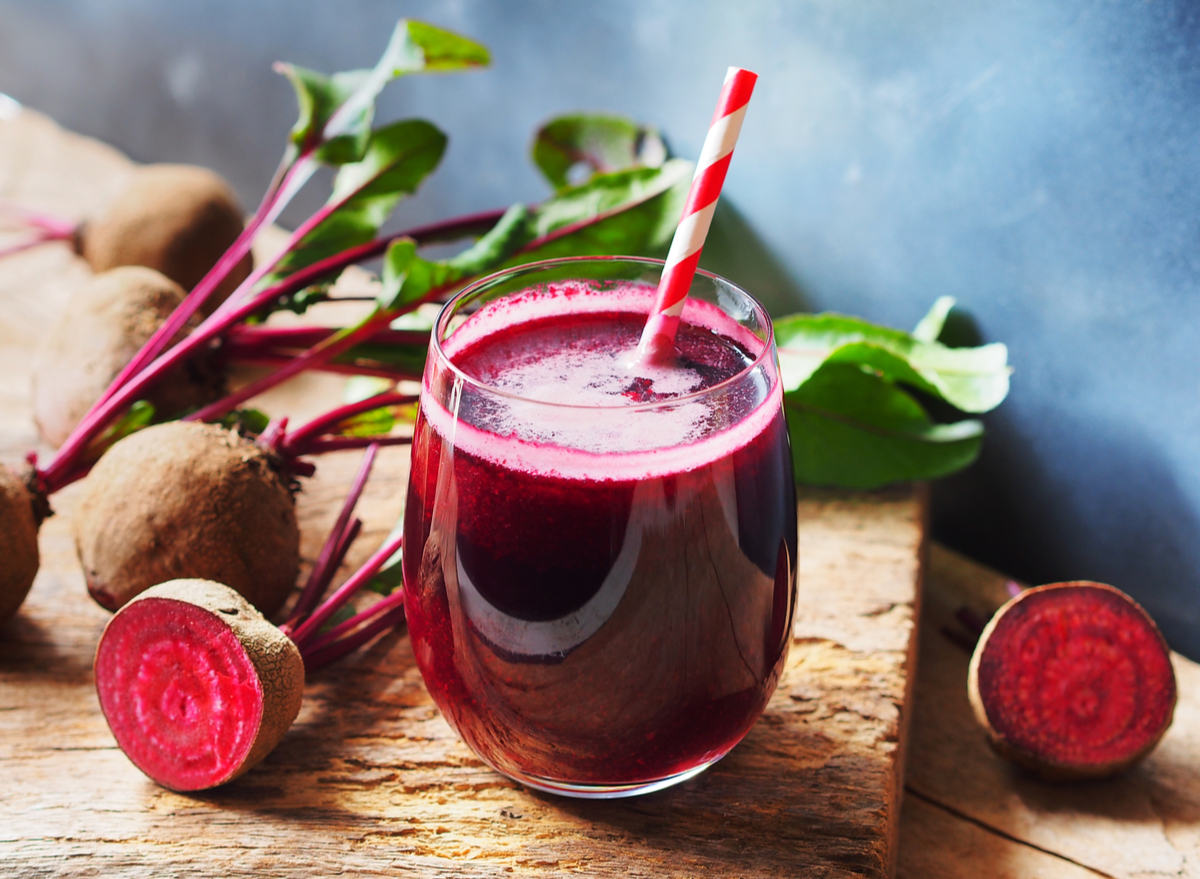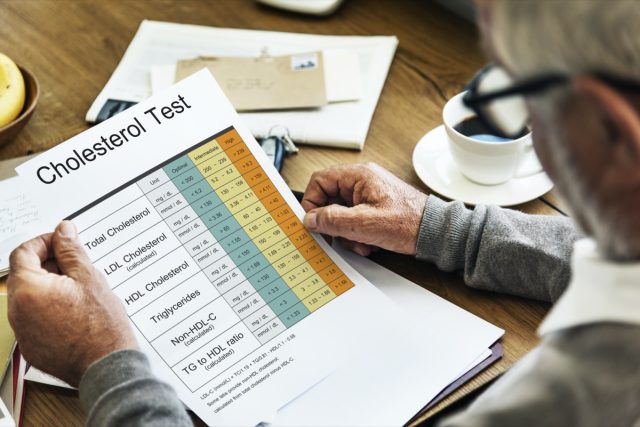What Happens to Your Body When You Drink Beet Juice

Often touted as a superfood, beets can provide a variety of health benefits. They can be eaten raw, roasted, pickled, pureed, or made into beet juice, making them incredibly versatile and delicious veggies! When beets are juiced, the effects on the body can differ compared to eating beets. You would need to eat more beets than the average person would in one sitting to have the same effect as a cup of beet juice. Antioxidants, nitrates, vitamins, and minerals are more concentrated in beetroot juice. Also, beet juice is more lacking in fiber compared to the beets you eat.
Athletes and active adults have taken a special interest in beet juice, as research has connected it to better performance and recovery. And athletes aren’t the only people who can benefit from adding beet juice to their diet; from lowering blood pressure and cholesterol, beet juice has a variety of effects on the body when you drink it.
Whether you buy beet juice in stores or prepare it at home using raw beets in a juicer, you should understand what you’re consuming when you pour a glass of ruby red beet juice. Here are some ways drinking beet juice can affect your body.
Beet juice can increase your stamina

Want to improve your time and crush your aerobic workouts? Drinking a glass of beet juice could do the trick. Researchers gave trained cyclists half a cup of concentrated beet juice a day for six days and found that cycle times, power output, and pulmonary oxygen uptake improved when compared to the placebo. Another small study with 20 well-trained men found that drinking beet juice an hour before a four-kilometer run decreased their time by an average of two minutes compared to the placebo drink. It’s thought that the nitrates found in foods like beet juice are able to reduce the cost of oxygen that the muscles need during exercise and improve the effectiveness of muscle contractions.
It may lower your blood pressure
A glass of beet juice a day could help keep your blood pressure under control. Once consumed, nitrates are converted into a chemical known as nitric oxide. Nitric oxide works on the blood vessels by dilating them, improving blood flow, and reducing the pressure blood has on the blood vessel walls. In one small study, people with high blood pressure drank a cup of beet juice daily for four weeks and had significant decreases in blood pressure (by an average of 7.7/5.2 mm Hg), 20% improved endothelial function, and reduced the stiffness of their arteries.
It might lower your cholesterol

While beet juice has been shown to be effective at reducing blood pressure, it may also benefit cholesterol levels—another risk factor for heart disease. Research on 30 physically active adult men found that one to two cups of beet juice daily for 15 days significantly increased antioxidant and nitrate levels in the body. Regarding cholesterol, HDL (goo) cholesterol increased by an average of seven points, while LDL (bad) cholesterol decreased by an average of 10 points. Keep in mind that this study was done with healthy and active adults, so more research is needed to see if beet juice can impact the cholesterol levels of people who already have high cholesterol or heart disease.
It may speed up muscle recovery

Strenuous workouts can put a lot of strain on your muscles, leading to increased soreness for days afterward. You may want to add beet juice to your post-workout routine to speed up that recovery time. One small study found that athletes recovered more quickly after consuming beetroot juice than the placebo group after jump workouts. The connection between beet juice and muscle soreness could be related to the high nitrate and antioxidant content and their effects on the muscles. But, it’s important to note that not all studies have found this same connection. Regardless, beetroot juice won’t hurt to drink after a workout. Take advantage of its sweet taste, natural sugars, and electrolytes to replenish your body.
Beet juice might lead to kidney stones
If you’ve ever had a kidney stone, it’s an experience you won’t likely forget. And unfortunately, if you’ve had a kidney stone in the past, you’re 50% more likely to have another. Foods that are high in oxalates, like beets, can increase this risk. Oxalates from food can build up and combine with calcium, creating stones that are too large to pass through the urine. If you’ve had kidney stones in the past, you may want to avoid or limit beet juice and other high-oxalate foods.






